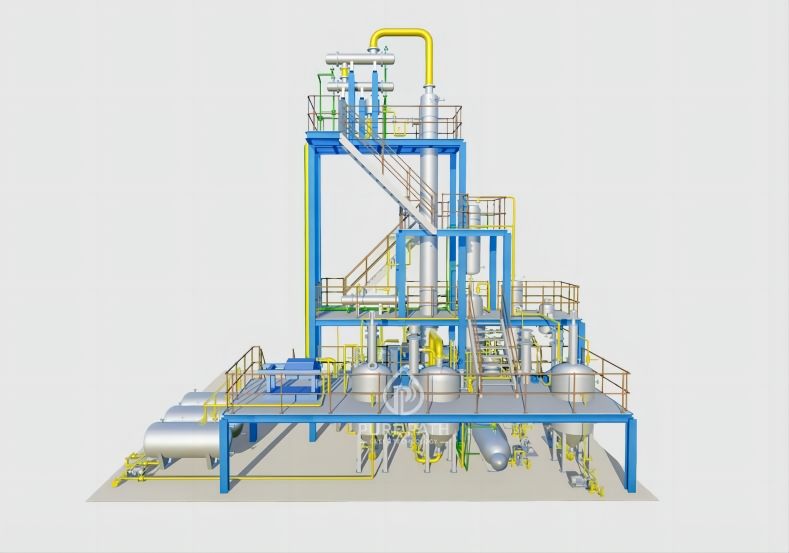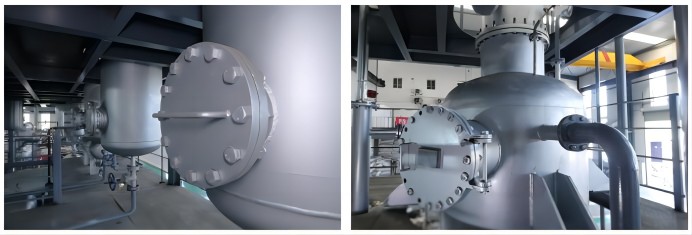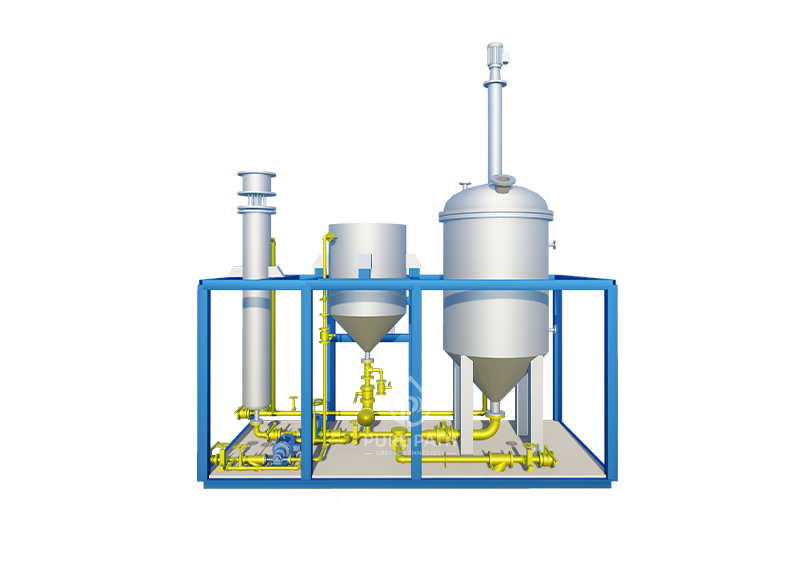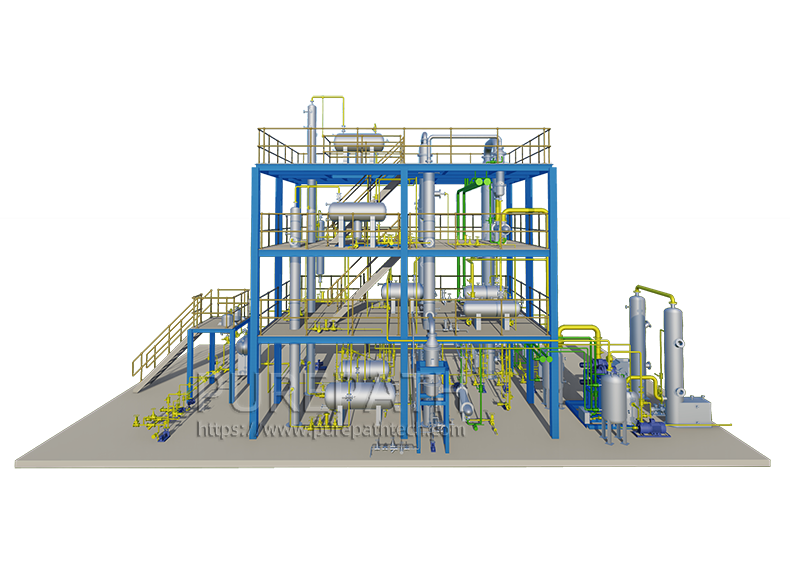Base Oil Solvent Extraction Plants: What They Are, Using Benefits, and How to Operate
Base oil, a critical component in lubricants and various industrial applications, plays a pivotal role in ensuring the smooth functioning of machinery and engines. However, the quality of base oil can significantly impact its performance. Base oil solvent extraction plants have emerged as a crucial technology in enhancing the quality and availability of base oils. In this article, we will explore what a base oil solvent extraction plant is, delve into its benefits, and discuss the safe and efficient operation of these plants.

What is a Base Oil Solvent Extraction Plant?
Base oil solvent extraction plants are industrial facilities designed to refine and improve the quality of base oils used in lubricants, hydraulic fluids, and other applications. These plants employ a specialized process that removes impurities and enhances the characteristics of base oils. Let’s take a closer look at the key aspects of these extraction plants.
1. Overview of the Extraction Process
The base oil extraction process typically involves the use of solvents to dissolve and separate the desired base oil components from the feedstock. This process allows for the removal of impurities, such as sulfur, aromatics, and waxes, resulting in a purer base oil product.
2. Types of Solvents Used
Various solvents can be used in base oil solvent extraction, including hexane, propane, and N-methyl-2-pyrrolidone (NMP). The choice of solvent depends on factors like the desired oil quality, feedstock composition, and environmental considerations.
- Key Components of a Base Oil Solvent Extraction Plant
- Extractor: The extractor is the heart of the extraction plant. It facilitates the mixing of solvent with the feedstock and the separation of the base oil from impurities.
- Desolventizer: After extraction, the solvent-laden mixture needs to be separated into base oil and solvent. The desolventizer is responsible for this crucial step.
- Distillation Unit: The distillation unit is used to recover the solvent from the extracted base oil, ensuring efficient resource utilization.
- Solvent Recovery System: To minimize environmental impact and operational costs, solvent recovery systems capture and recycle solvents for reuse in the extraction process.
The Benefits of Using a Base Oil Solvent Extraction Plant
There are several benefits to using a base oil solvent extraction plant:
- Improved Oil Quality
- Reduction of Impurities: Solvent extraction effectively removes impurities like sulfur and aromatics from the base oil, enhancing its purity and performance.
- Enhanced Viscosity Index: The process can also modify the base oil’s viscosity index, making it suitable for a broader range of applications.
- Cost-Effective Oil Production
- Increased Oil Yield: Base oil solvent extraction plants yield a higher quantity of refined oil from the same amount of feedstock compared to traditional methods.
- Reduced Environmental Impact: By using solvent recovery systems, these plants reduce solvent emissions and minimize their environmental footprint.
- Versatility in Feedstock
- Base oil solvent extraction plants can handle a wide range of feedstock materials, allowing manufacturers to adapt to different sources and availability, ensuring a consistent supply of base oil.
- Adaptability to Industry Requirements
- These plants can be customized to meet specific industry standards and requirements, ensuring that the produced base oil aligns with the needs of various sectors, such as automotive, industrial, and marine.

How to Operate a Base Oil Solvent Extraction Plant Safely and Efficiently?
Operating a base oil solvent extraction plant requires strict adherence to safety protocols and efficient practices to maximize productivity. Let’s explore the key considerations for safe and efficient operation:
- Pre-Operational Considerations
- Equipment Inspection and Maintenance: Regular inspections and maintenance of plant equipment ensure proper functioning and reduce the risk of accidents.
- Solvent Handling and Storage: Proper storage and handling of solvents are crucial to prevent leaks, spills, and health hazards. Staff should be trained in safe solvent handling procedures.
- Operational Procedures
- Loading and Preconditioning of Feedstock: Proper preparation and handling of feedstock materials ensure efficient extraction and prevent equipment damage.
- Solvent Extraction Process: Careful monitoring of the extraction process, including solvent-to-feed ratios and temperature control, is essential for optimal base oil quality.
- Desolventizing: The desolventizer must be operated to efficiently separate the base oil from the solvent-laden mixture while minimizing energy consumption.
- Distillation and Solvent Recovery: Efficient distillation and solvent recovery processes reduce solvent wastage and lower operational costs.
- Safety Measures
- Personal Protective Equipment (PPE): Workers should wear appropriate PPE, including gloves, goggles, and respiratory protection, to minimize exposure to solvents and other potential hazards.
- Emergency Response Plans: Comprehensive emergency response plans should be in place, including procedures for addressing spills, fires, and other emergencies.
- Environmental Compliance
- Waste Management: Proper disposal or recycling of waste materials, including spent solvents and impurities, is crucial to meet environmental regulations.
- Emission Control: Installing emission control systems helps reduce the release of harmful pollutants into the atmosphere.
- Efficiency Enhancement
- Process Optimization: Continuous monitoring and optimization of the extraction process can improve yields and product quality while reducing energy consumption.
- Monitoring and Control Systems: Implementing advanced monitoring and control systems allows for real-time adjustments and ensures consistent product quality.

Summary
Base oil solvent extraction plants have become indispensable in the lubricant and industrial oil manufacturing industries. They offer a multitude of benefits, including improved oil quality, cost-effective production, and versatility in feedstock. However, the safe and efficient operation of these plants is paramount.
Operators must prioritize safety through equipment maintenance, proper solvent handling, and comprehensive emergency response plans. Additionally, environmental compliance, waste management, and emission control are crucial aspects to consider. Efficiency enhancements, such as process optimization and advanced monitoring systems, further contribute to the success of base oil solvent extraction plants.
As the demand for high-quality base oils continues to grow, these extraction plants are poised to play a vital role in meeting industry requirements while ensuring responsible and sustainable oil production practices.







